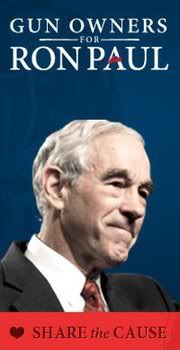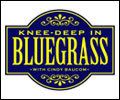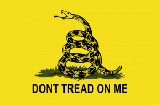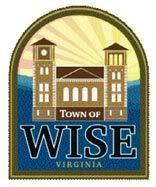"Before government hijacked charity"
“Before government hijacked charity in the form of the New Deal and Great Society, compassion and charity began at home. People were to feed the hungry, clothe the naked, visit prisoners, care for widows and orphans and love their enemies. Those were biblical commands to individuals, not government. Democrat politicians see things differently. Apparently believing there aren’t enough caring people, they want compassion to originate in Washington, depriving it of its true meaning. They define compassion as big and ever-growing government and a guaranteed check forever with no expectation—or requirement—the recipient will ever better his or her circumstances.” —Cal Thomas
Indeed. Just read how far we have strayed....
Not Yours to Give
Col. Davy Crockett
1884
From The Life of Colonel David Crockett
Member of the U.S. Congress 1827-31 & 1832-35
Compiled from The Life of Colonel David Crockett
by Edward S. Ellis (Philadelphia: Porter & Coates, 1884)
One day in the House of Representatives, a bill was taken up appropriating money for the benefit of a widow of a distinguished naval officer. Several beautiful speeches had been made in its support. The Speaker was just about to put the question when Crockett arose:
"Mr. Speaker --- I have as much respect for the memory of the deceased, and as much sympathy for the suffering of the living, if suffering there be, as any man in this house, but we must not permit our respect for the dead or our sympathy for a part of the living to lead us into an act of injustice to the balance of the living. I will not go into an argument to prove that Congress has no power to appropriate this money as an act of charity. Every member upon this floor knows it. We have the right, as individuals, to give away as much of our own money as we please in charity; but as members of Congress we have no right to appropriate a dollar of the public money. Some eloquent appeals have been made to us upon the ground that it is a debt due the deceased. Mr. Speaker, the deceased lived long after the close of the war; he was in office to the day of his death, and I have never heard that the government was in arrears to him."
APPROPRIATE: To set apart for, or assign for a particular use, in exclusion of all other uses; as, a spot of ground is appropriated for a garden. [Webster?s 1828]
MONEY: 1) Coin; stamped metal; any piece of metal, usually gold, silver or copper, stamped by public authority, and used as the medium of commerce. 2) Bank notes or bills of credit issued by authority, and exchangeable for coin or redeemable, are also called money; as such notes in modern times represent coin, and are used as a substitute for it.If a man pays in hand for goods in bank notes which are current, he is said to pay in ready money. [Webster?s 1828]
CHARITY: Liberality to the poor, consisting in almsgiving or benefactions (Alms - Any thing given gratuitously to relive the poor, as money, food, or clothing, otherwise called charity), or gratuitous services to relieve them in distress. [Webster?s 1828]
"Every man in this House knows it is not a debt. We cannot, without the grossest corruption, appropriate this money as the payment of a debt. We have not the semblance of authority to appropriate it as a charity. Mr. Speaker, I have said we have the right to give as much money of our own as we please. I am the poorest man on this floor. I cannot vote for this bill, but I will give one week's pay to the object, and, if every member of Congress will do the same, it will amount to more than the bill asks."
AUTHORITY: Legal power or a right to command or act; as the authority of a prince over subjects, and of parents over children.? Power; rule; sway. [Webster?s 1828]
He took his seat. Nobody replied. The bill was put upon its passage, and, instead of passing unanimously, as was generally supposed, and as, no doubt it would but for that speech, it received but few votes and of course, was lost.
Later when asked by a friend why he had opposed the appropriation, Crockett gave this explanation:
"Several years ago I was one evening standing on the steps of the Capitol with some other members of Congress when our attention was attracted by a great light over in Georgetown. It was evidently a large fire. We jumped into a hack and drove over as fast we could. In spite of all that could be done, many houses were burned and many families made houseless, and besides, some of them had lost all but the clothes they had on. The weather was very cold, and when I saw so many women and children suffering, I felt that something ought to be done for them. The next morning a bill was introduced appropriating $20,000 for their relief. We put aside all other business and rushed it through as soon as it could be done.
The next summer, when it began to be time to think about the election, I concluded I would take a scout around among the boys of my district. I had no opposition there, but, as the election was some time off, I did not know what might turn up. When riding one day in part of my district in which I was more of a stranger than any other, I saw a man in a field plowing and coming toward the road. I gauged my gait so that I should meet as he came to the fence. As he came up, I spoke to the man. He replied politely, but as I thought, rather coldly.
I began, 'Well, friend, I am one of those unfortunate beings called candidates, and-'
'Yes, I know you; you are Colonel Crockett, I have seen you once before and voted for you the last time you were elected. I suppose you are out electioneering right now, but you had better not waste your time or mine. I shall not vote for you again.'
If you don't know the rest of the story click here to read it all.



























Comments on ""Before government hijacked charity""
-
 James Atticus Bowden said ... (7:29 PM) :
James Atticus Bowden said ... (7:29 PM) :
post a commentYes and amen, except there was the Great Depression. The Depression overwhelmed the resources of the churches and compassionate people.
FDR's responses actually lengthened the Depression. But, folks then didn't know it. He gave them hope. He was an absolute hero to so many Americans, we shouldn't gloss over the facts.
We can step away from socialism now. We can use the promise of FDR - like individual savings retirement accounts - and make them real - not a government Ponzi scheme.
And we should encourage our Party and legislators to do so boldly. But, let's not forget what happened.
The Depression was before my time, but listen carefully - I grew up with it in the 50s and 60s.
Now, is the time to do what is right.